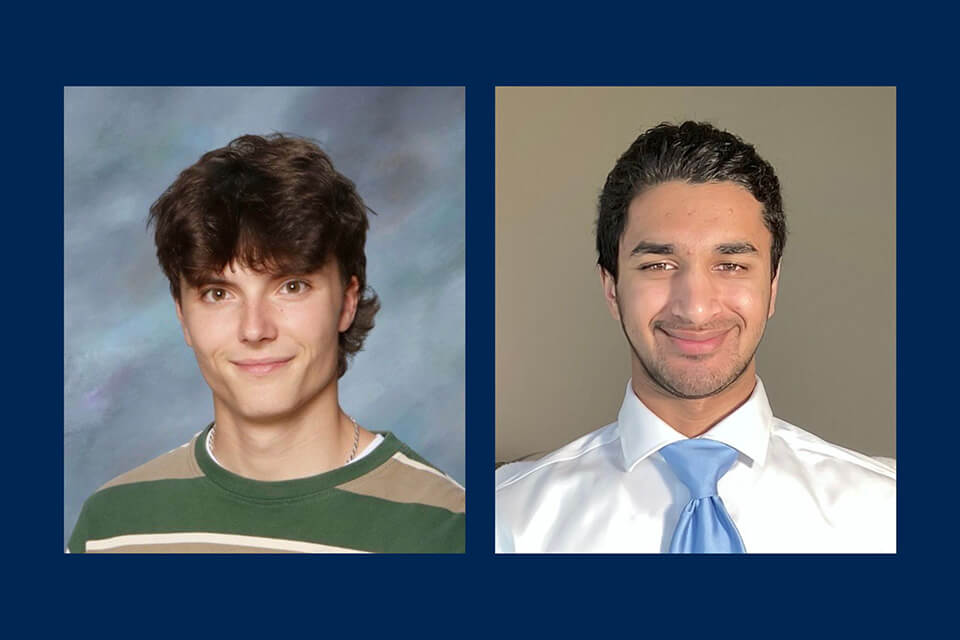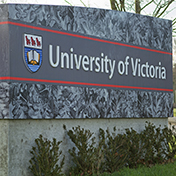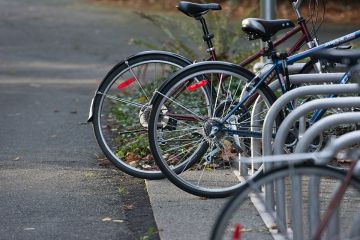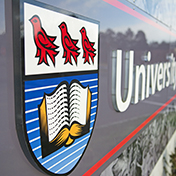2024 UVic Schulich Leader Scholars
- Richard Dal Monte

A pair of BC students who share an interest in water systems and the sciences, and who are beginning their studies at the University of Victoria (UVic) this fall, are among the 100 elite scholars from across Canada recently named Schulich Leaders.
Mahir Singh was named the 2024 Schulich Leader Scholar in Engineering and will be entering UVic from Ballenas Secondary School in Parksville, while Cohen Cheetham, a recent graduate of Carson Graham Secondary School in North Vancouver, is the 2024 Schulich Leader Scholar in Science. Singh and Cheetham have demonstrated academic excellence as well as leadership within their schools and communities.
Impact with engineering and entrepreneurship
For Singh, engineering is about making a difference in the world, just as his life so far has been about making a difference in his community.
As a child of Punjabi immigrants to Canada, he learned Punjabi while studying in French immersion—and taught it to younger people—to preserve his heritage, strengthen his community and work against cultural inequality. He also volunteered at his elementary school, academically supporting students in French immersion and modelling the benefits of multilingualism.
Now, as he embarks on an education in engineering, he says, “Engineering for me is about ‘How can I make an impact on the world? How can I use the research I do toward the betterment of humanity?’ That’s why I chose it. It’s my purpose or my way of giving back and creating a positive impact.”
“I think of engineering as applied science,” Singh says. “The sort of research I do in sciences, I can apply that and find a way we can deliver it to the average person.”
As part of a Science Research Methods class at Ballenas Secondary led by award-winning teacher Carl Savage, whom Singh lauds as a mentor, Singh took on a research project to develop a ceramic-carbon water filter to produce clean, potable water, a particular concern in many First Nation communities in BC and across Canada.
The filter prototype was devised to be affordable and sustainable, by using easily accessible and recyclable materials. He made his digitally designed and tested prototype out of PVC pipe and 3D printed elements.
“With the limited material and testing resources I had, it worked great,” he says.
As he starts his post-secondary education journey at UVic, Singh expresses immense gratitude for the warm welcome he received and says he feels deeply honoured to have met such passionate faculty and staff. He says the university’s research into water and sustainable energy was also key to his decision to attend UVic.
Most importantly, the university’s values, aspirations and motives align with my personal values and life goals. I found UVic to be a perfect fit for me.”
—Mahir Singh
Singh’s goal is to create and lead a company working in water purification and energy for smaller communities, and he says he’s encouraged by the number of innovative companies created by UVic scholars and graduates.
Immersive education and eyes on a future of tech development
Cheetham’s interest in science started not in a classroom or a laboratory, but in the lush, green outdoors of his hometown of North Vancouver.
He notes that from a young age, he was “immersed in nature” by his family, and says, “I always wanted to get a better understanding of ecosystems and how all those things connect. It made me care a lot about different systems and how they’re being affected by global warming and pollution.”
“The reason I’ve chosen this [educational] path is so that I can gain a better understanding of the science behind those things, then immerse myself in a field where I can work towards protecting what I loved so much as a child and still love today.”
Cheetham says education by immersion works for him and notes, “I find I can express my ideas better in collaboration than just by myself.”
That approach was behind both his involvement in Model United Nations and his leadership in starting, then managing, intramural sports tournaments at his school. Also at Carson Graham, where he was student in the International Baccalaureate (IB) program, he advocated for, then led, a tutoring program for students in grades 8 to 12.
All the while, he maintained a 98 per cent average in IB Higher Level Chemistry and, spurred by that class and a conversation with a representative of the David Suzuki Foundation, embarked on an experiment to examine how nutrient pollution affects water quality, something he studied using household fertilizers.
He plans to continue his science studies at UVic, which he chose for its connection to the Bamfield Marine Sciences Centre and the university-based Ocean Networks Canada, a world-leading ocean observing facility.
He says he hopes to one day develop technology to prevent water pollution and improve access to clean water sources.
“In order to fully understand an issue, you have to have a good knowledge of it from all angles,” he says.
In pursuing my studies, I want to make sure that I can gain the most whole and multifaceted understanding of the issues I want to tackle.”
—Cohen Cheetham
He adds: “I’m going to be a lifelong learner. I’m dedicated to immersing myself in situations where I can learn more about the things I care about. And I think going to UVic is the way I can do that.”
About Schulich Leader Scholarships Canada
Recognizing the increasing importance and impact that STEM disciplines will have on the prosperity of future generations, businessman and philanthropist Seymour Schulich established this more than $100 million scholarship fund in 2012 to encourage our best and brightest students to become Schulich Leader Scholars: the next generation of entrepreneurial-minded, technology innovators.
Through The Schulich Foundation, these prestigious entrance scholarships are awarded to 100 high school graduates enrolling in a science, technology, engineering or mathematics (STEM) undergraduate program at 20 partner universities in Canada. Every high school in Canada can submit one Schulich Leader Nominee per academic year based on academic excellence in STEM, entrepreneurial leadership and financial need.
Photos
In this story
Keywords: student life, award, engineering, science
People: Cohen Cheetham, Mahir Singh




